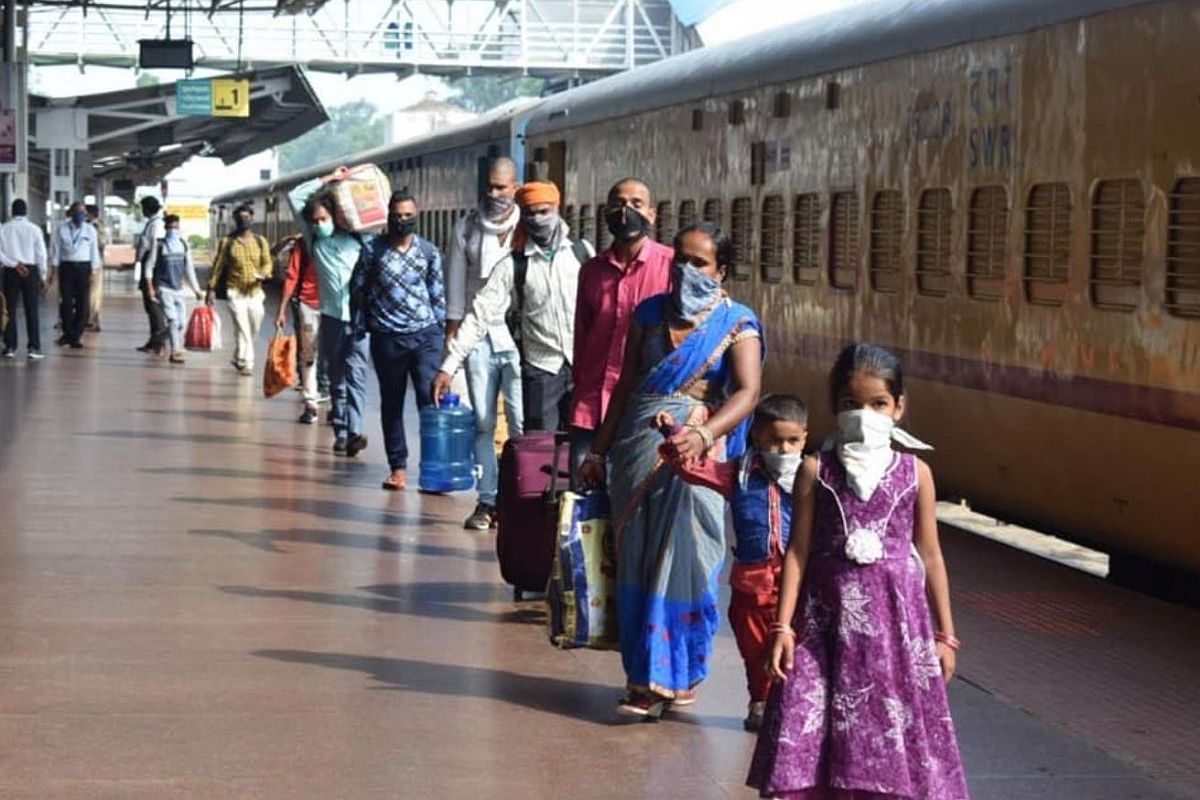In their urgent desperation to get back to their source of livelihood, migrant workers have started to return from Odisha’s Ganjam district to their primary source of income, specifically the diamond- cutting units and textile factories of Surat in Gujarat.
The rush to return from one of Odisha’s worst affected districts would normally have raised no cavil if the workers had not violated the stipulation that determines the inter-state border movement of labourers, notably the Inter-State Migrant Workmen (Regulation of Employment and Conditions of Service) Act, 1979.
Advertisement
The Act to protect the rights of inter-state migrant workers at their workplace has till date remained a non-starter for labourers who predominantly belong to Ganjam, as it has for others around the country. On the face of it, the critical legislation has been sacrificed at the altar of hunger and need.
Equally, it is a commentary on the lack of employment opportunities in the perdurably poor district. Indeed, the return to Gujarat began in June when the pandemic was at its peak. The suffering of the migrants had exacerbated as they were without livelihood for two months and no less crucially, Ganjam had become the epicentre of Covid-19 in the state.
According to data released this week and reported in this newspaper, no fewer than 50,000 migrants have already returned to Surat, the country’s centre for cutting and trading in diamonds, and an important component of the textile trade. Surat has historically occupied a special slot in the economic development of British India.
At least 15 buses from Gujarat are arriving in Ganjam each day to transport these migrant workers from their homes. Both state governments are acutely aware that the unofficial return journey to workplaces flies in the face of the Inter-State Migrant Workmen Act.
The risk of the contagion spreading in crowded buses is dangerously real. Social activists contend that the Odisha government has lost a “golden opportunity” to map the workers’ skill profiles and register each one of them under the Act. The journey of the migrants has a heartrending facet as well. Nearly 1,000 migrants are reported to have perished while returning home ~ not necessarily from Surat ~ during the lockdown.
Yet the Centre had no substantive data to offer in Parliament on Monday on whether any compensation was given to the families of migrant workers who died. These migrant workers have suffered an incredibly raw deal since 25 March, and it is decidedly astonishing that the government has no figures on the casualties among the jobless migrants in course of their trek from their workplaces to be with their families.
The onus lies with the government to verify the deaths and offer compensation. The privation over the past six months has deepened the tragedy. On closer reflection, the implementation of the Act devolves on the state governments, and not on the migrants per se.











